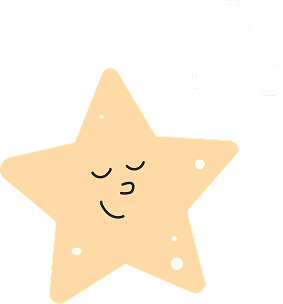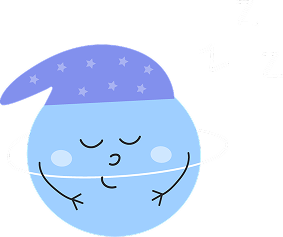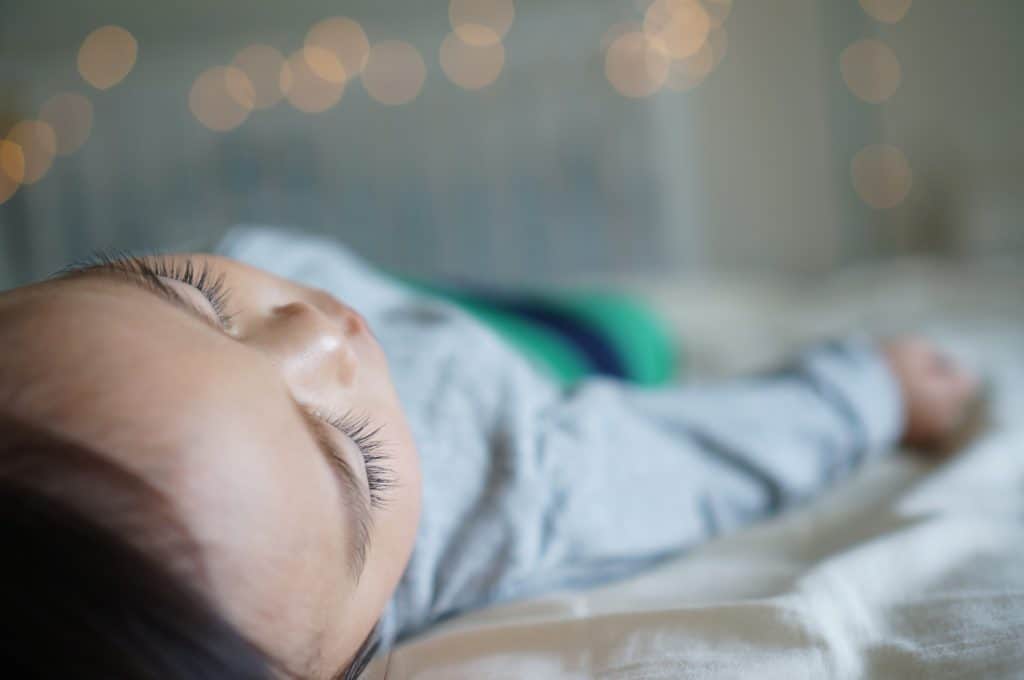Sleep Calculator for Kids



Sleep Calculator for Kids — Best Sleep and Wake Times for Children
Sleepopolis may earn a commission on sales through our affiliate links in this article. This commission allows us to run our testing lab and continue to bring our readers the most comprehensive information on sleep and related products. See our disclosures.
Making sure your child gets enough sleep is one of the most important things you can do as a parent. It’s also one of the toughest! It takes time and effort for kids to learn how to fall asleep — and to stay in their own beds — in order to get the amount of Zzz’s they need. This is no easy task, as children need up to 16 hours of sleep every night (including naps), depending on their age.
Sufficient sleep goes beyond the number of hours they clock in, too. Normal and healthy shuteye looks at the duration, quality, and timing of our Zzz’s. Part of making sure they’re getting enough sleep is getting them one of the best mattresses for kids, but knowing how much sleep they’re actually supposed to be getting can be tricky. That’s why we’ve developed a special sleep calculator for kids, which can determine if your child is getting enough hours of sleep and going to bed at the right time, all of which will up the ante on sleep quality.
Our sleep calculator for babies and kids is super easy to use: Simply enter what time you want your kiddo to wake up in the morning, and the calculator will tell you a good bedtime range so they can complete a certain amount of sleep cycles and get a healthy bout of shut-eye.
Parents: Make sure to check out our sleep calculator app for adults, too.
Note: Any and all tips on Sleepopolis are meant to be informative in nature, but shouldn’t be taken as medical advice, nor should they take the place of medical advice and supervision from a trained professional. While sleep cycles could be an important thing for you and your child to consider, they’re far from the only factors that go into a healthy night’s sleep. If you feel your child is having serious trouble sleeping, see a healthcare provider immediately.
Why Is Calculating Sleep Important For Kids?
Kids need sleep — a lot of it. Sleep is also critical for healthy growth in children, aiding in the development of improved attention, behavior, and memory, along with supporting overall mental and physical health. In fact, starting at infancy, scientists have been able to prove that sleep contributes to memory consolidation and cognitive growth!
Sleep looks a lot different for kids, too. Not only do they typically doze off earlier than adults, but they also go through a sleep cycle in just 60 minutes, versus an adult whose typical sleep cycle is 90 minutes. This difference is key: A speedy sleep cycle means your kid will return to very light sleep every hour — stages 1 and 2 — and can be more easily disturbed throughout the night.
Sleep Cycles For Kids
What’s a sleep cycle, you ask? In case you’re unfamiliar, here’s a quick rundown. When we fall asleep, our bodies go through a series of waves, which we think of as sleep cycles. There are five cycles in total. While adults go through these waves in 90 minutes, kids can speed through them in 50-60 minutes.
The first four stages comprise our non-rapid eye movement (NREM) sleep, while the fifth stage is when we move into rapid eye movement (REM) sleep. In NREM sleep, we start in light sleep and gradually build towards deeper sleep, and finally, our REM cycle. In REM, our eyes dart up and down; this is most likely when dreaming occurs.
If your kid is old enough to understand sleep cycles, here’s a way to explain it to them:
One Cycle, 5 Stages, 60 Minutes in Total
Stages 1+2 (NREM): This is when you fall asleep — you are still sleeping lightly and it’s easy for you to wake up.
Stages 3+4 (NREM): You are in a deep and restful sleep. Your breathing slows down and your body is super still.
Stage 5 (REM): Your brain is active and you begin dreaming, and your eyes also move around.
Moreover, as we age, the amount of sleep we need decreases, along with the time spent in these lighter sleep cycles. For example, by the time we reach three years of age, 33 percent of our sleep is considered light. When we reach 13 years old, only 20 percent of our sleeping time is light. This is good news, meaning that as kids get older, there’s less of a chance they’ll wake up from small noises and outside disturbances.
Here’s a handy guide to how many hours of snooze-time kids need depending on how old they are. For this sleep calculator, age input is key.
- Newborns: 14-17 hours
- Infants: 12-15 hours
- Toddlers: 11-14 hours
- Pre-Schoolers: 10-13 hours
- School-Aged Children: 9-11 hours
- Teenagers: 8-10 hours

Sleep Routines for Babies
As amazing as it would be for a simple one-size-fits-all baby sleep routine, it simply doesn’t exist — an infant’s sleep needs and body change so quickly that it can feel hard to keep up. One of the greatest contributing factors to babies’ unpredictable sleep routines is their underdeveloped circadian rhythms or their internal clocks.
In adults and children, our circadian rhythm helps our bodies understand when it’s time to wake up and go to sleep; however, evidence shows that circadian rhythms don’t even start to emerge in babies until they’re 2-3 months old, and beyond that, they aren’t fully developed until they’re over a year old. That means it’ll be a while before newborn parents can count on their babies to catch most of their Zzz’s at night.
Despite this, you can still set your baby up for success to the best of your ability. Practice good sleep hygiene and keep their sleeping environment cool, dark, and quiet, and be prepared to adjust their sleep routine as they age, and explore sleep training options early so you know what you’ll be comfortable with when the time comes — though there will be ups and downs (hello, baby sleep regressions), it does get better!
Bedroom Routines for Kids
Knowing how important sleep is for your kid is half the battle. Getting them to sleep is a whole other to-do. Luckily, in most cases, establishing a regular bedtime routine for your child will make it easier for them to fall and stay asleep. They are also important for overall development and well-being; a nightly routine is said to support emotional and behavioral growth, language development, and improved literacy. (8) So many benefits around bedtime!
Having a consistent routine makes putting them to bed a smooth process that can be both enjoyable and stress-free. Here are some steps you can take with your kid before it’s time to turn off the lights.
Start with Food
Our metabolic processes can play a big role in our sleep habits, so pay close attention to what they are eating and drinking before bedtime. (9) It’s generally recommended to enjoy dinner at least two hours before it is time to hit the hay since night-time food consumption can negatively affect our quality of sleep. (10) (11)
The best foods for sleep include complex carbohydrates (think: whole wheat bread and crackers) and tryptophan-containing foods, like peanuts and cheese. Science also says that products like milk, fruits, and veggies promote good sleep. (12) Avoid processed sweets that might give your kid a sugar high and keep them wired. (13)
Set the stage
Set your child up for shut-eye success with a perfect bedroom atmosphere. For starters, their bedroom should be dark. Consider heavy or blackout curtains to block out the light. It’s also important to keep the room at a cool temperature; aim for 60° – 65°F. (14) Many parents are working to keep their kids’ bedrooms a “screen-free” zones, too. While this is widely debated in the parenting world, some experts recommend replacing any mobile device, tablet, television, or computer with a kid-friendly bookshelf. (15)
Ready, Set, Sleep
Aim to create a bedtime routine that includes relaxing and fun activities for your child. Depending on how old they are, give them some activities they can do themselves, like picking out their pajamas and choosing a book to read. A soothing and fun routine could include taking a warm bath, brushing teeth, and reading a story together. If your child isn’t motivated to do the routine every night, some parents offer rewards and incentives for following all the steps and staying in bed until morning. A little gold star can go a long way.
It’s no secret that sleep is an important thing for your child to master. We hope you use this sleep calculator for toddlers or adolescents, or even use it as a back to school sleep generator for your teen. Using the calculator with your child might make it fun and get them more excited to hit the hay, too! And if you find yourself also asking “how many hours did I sleep?” calculate all that fun data over at our sleep calculator for adults.

Sleepopolis Team
About Author
The Sleepopolis team is all about helping you sleep better. We live, eat, breathe, and sleep (ha!) all things, well, sleep! Whether you need a new mattress, are having trouble sleeping, or are just tired of counting sheep, we’ve got you covered. Check back here often for the latest and greatest in mattress reviews, sleep news, or health tips, and in the meantime, sleep well.


























